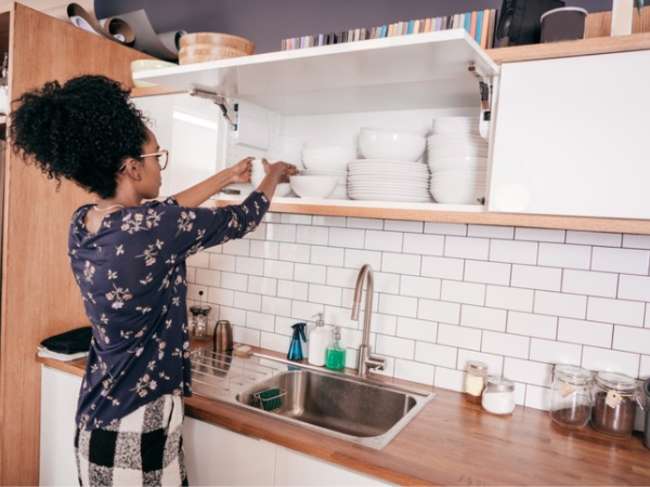We may earn revenue from the products available on this page and participate in affiliate programs. Learn More ›
Conquer Clutter
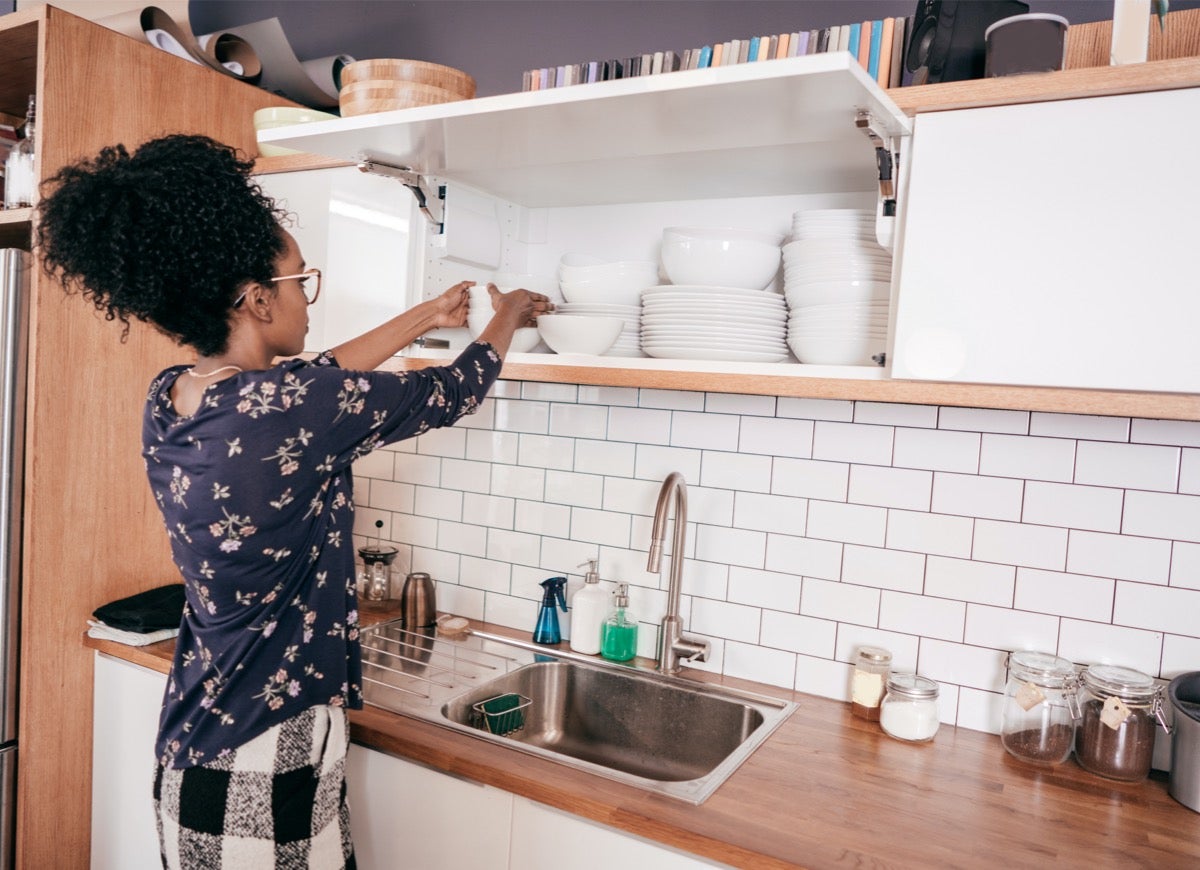
You’re probably familiar with the old adage, “A place for everything, and everything in its place,” but you might not have appreciated how much an organized home contributes to your peace of mind. Particularly these days, when the outside world often feels chaotic, walking through your front door should bring a sense of relief. All too often, however, clutter and disorganization turn what should be your relaxation zone into yet another source of stress. Luckily, while you can’t do much about world events, you have complete control over the doings inside your own home. Use these 12 tips to help you conquer chaotic clutter.
Kitchen Reminder Center
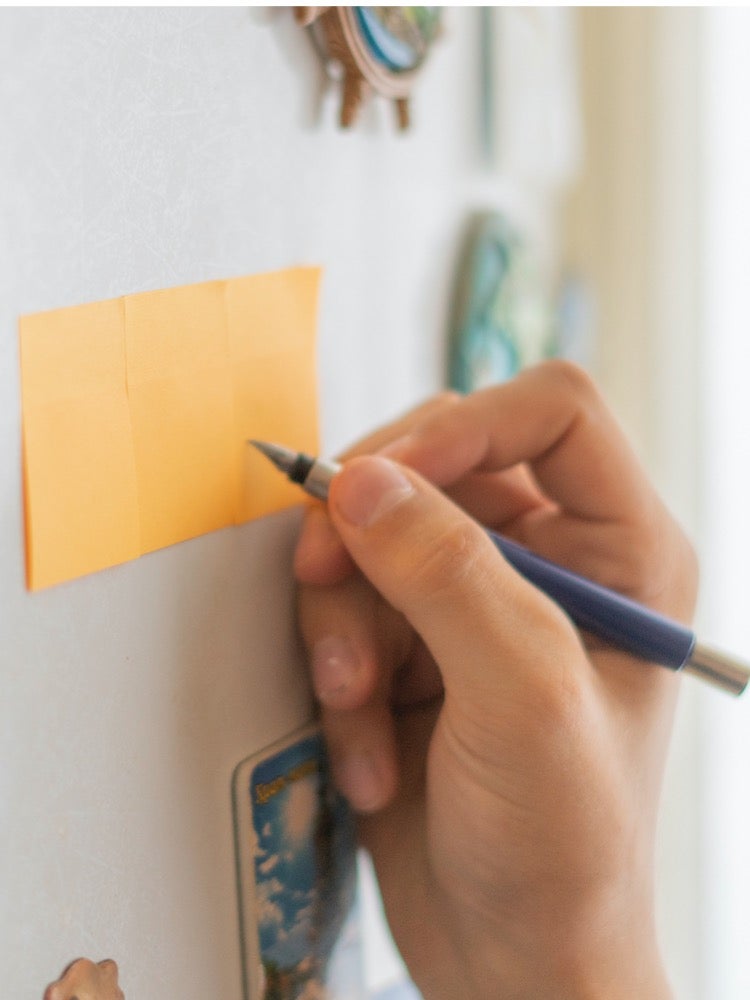
Turn your kitchen into command central: Attach a couple of clear plastic file folders to the inside of your pantry door with double-sided tape or adhesive putty, then use them to keep track of the week’s menus, needed groceries, and important tasks. Just slip your recipes, weekly schedule, and grocery list into the folders so they’re always close at hand and ready to remind you to start the slow cooker before leaving for work, pick up milk on the way home, or fill grab-and-go baggies with snacks for school lunches.
Mugs and Glasses
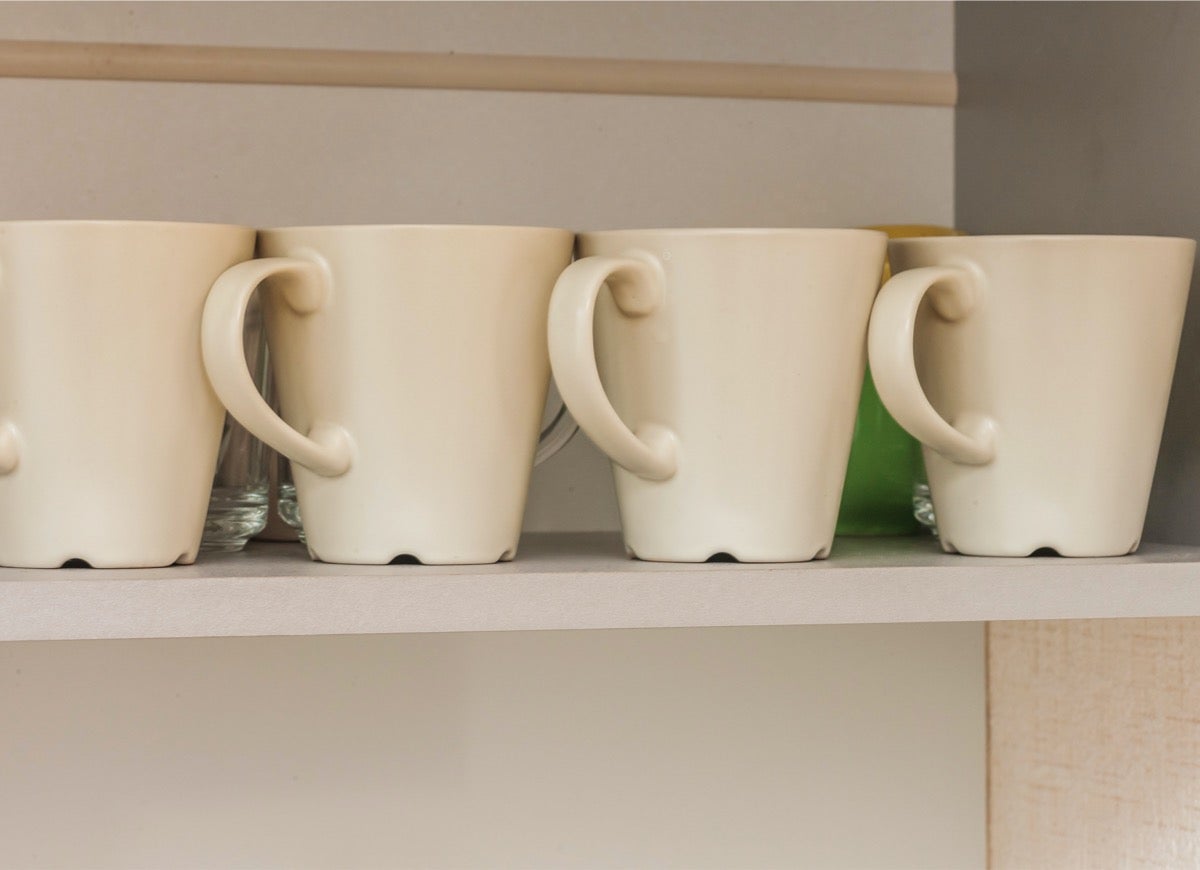
If there are four of you in the family, but 20 mugs and drinking glasses in the cabinet, you can safely let a few go. Toss any with cracks or chips, outgrown childhood motifs, or excessive staining, then organize what’s left. Get creative with storage by screwing a few hooks along the outside bottom edge of your cabinet to display mugs with colorful or cute designs, or add a couple of wire shelf racks inside the cabinet to double the space for cups or glasses.
Clothing Clutter
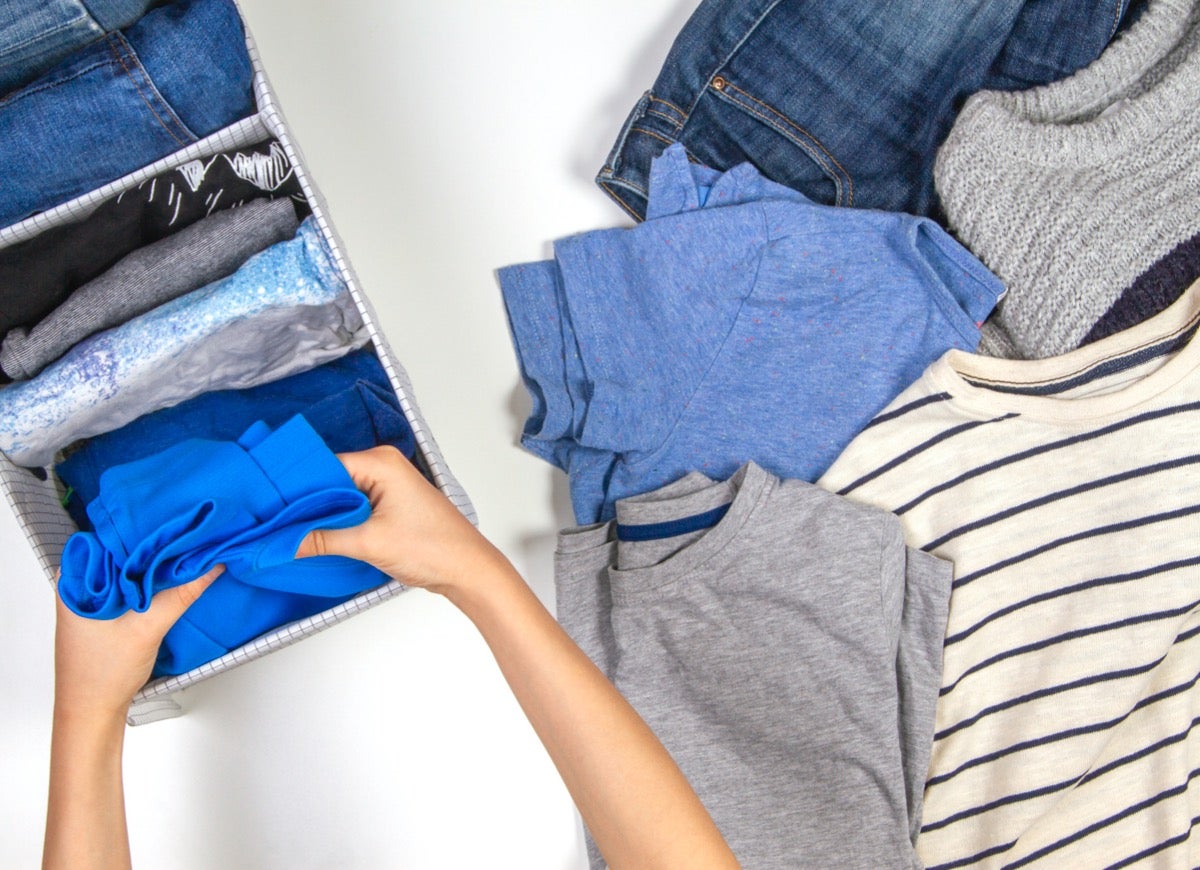
Purge your closet and dresser. Anything that doesn’t fit or hasn’t been worn in a year goes to Goodwill. Anything stained, torn, or damaged beyond repair goes in the dumpster or rag bin. Be especially ruthless when it comes to shapeless, frayed, or uncomfortable undergarments, and toss all the socks that are missing their mates; those are never coming back. Organize the remainder by keeping like items together: one drawer devoted to undergarments, all pants hanging together in the closet, sweaters folded and stored on a closet shelf.
Related: 25 Closet Organization Ideas for Saving Space and Sanity
Linen Closet
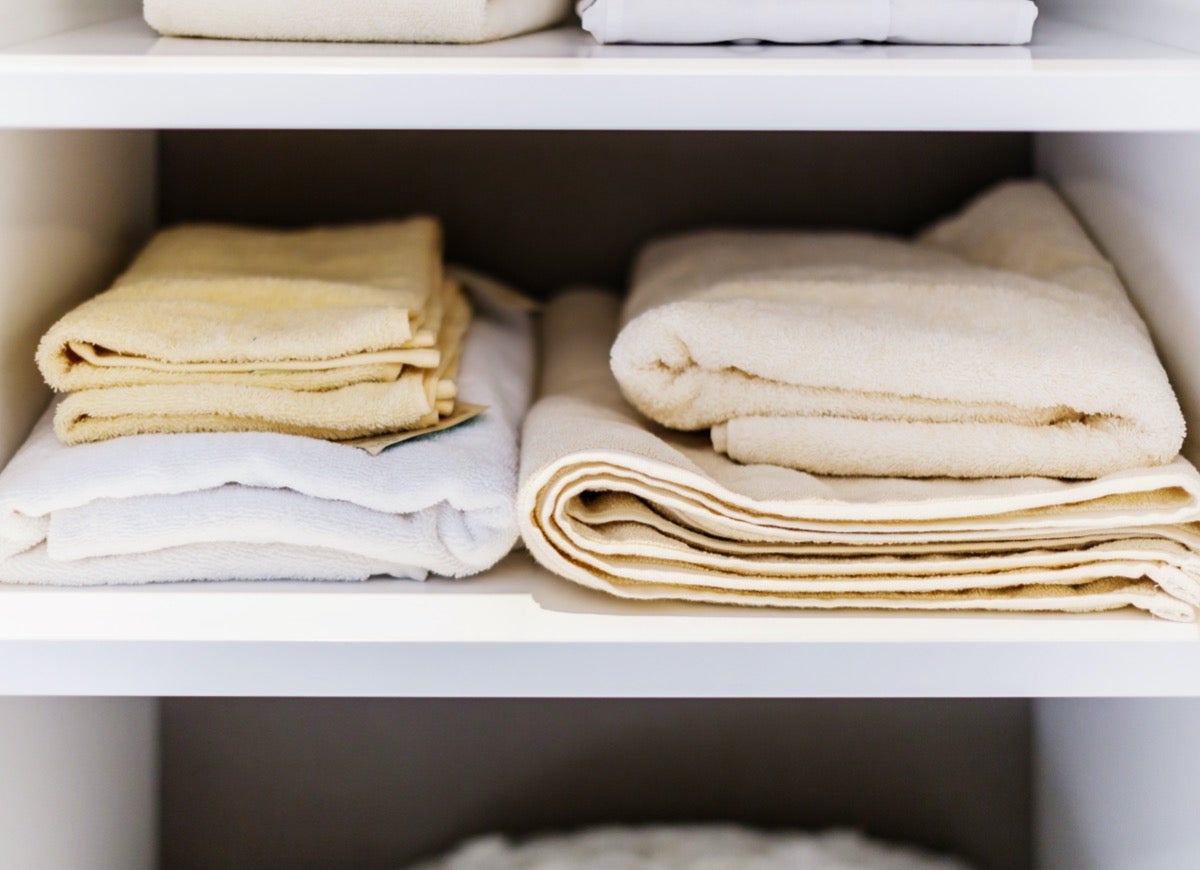
If opening your linen closet releases a deluge of mismatched sheets, it’s time to declutter. Animal shelters and rescues love donations of old sheets and towels, so bring them stained, threadbare, or mismatched linens. Keep just a couple of complete sheet sets for each bed in the house, two or three towel sets per person, and an extra blanket for each bed. Shelf dividers are a must for stacking towels. A small bin for each family member’s sheet sets makes it easy to grab the right one on laundry day. Simplify the task even further by storing the folded fitted and top sheet inside their appropriate pillowcase.
Kitchen Sink Storage
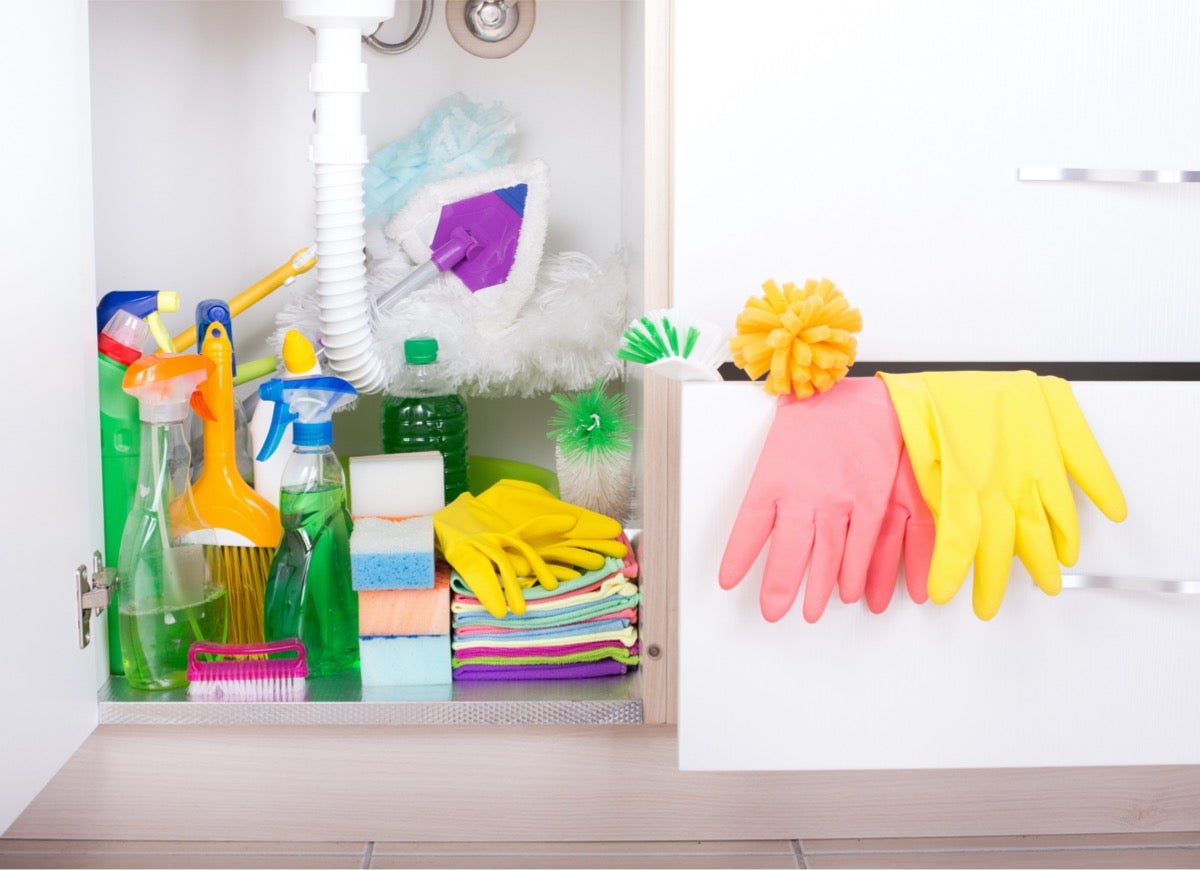
Open up the cabinet door underneath your kitchen sink and take a peek inside. What do you see? You should see the plumbing, but if you can’t because the pipes are hidden by a nest of old paper bags, cleaning supplies, pet food, and various junk, it’s time to get organized. First, pull everything out and get rid of unneeded or expired items. Next, corral your cleaning supplies in a handy caddy or two so you can grab and go on housework day. Finish up by adding an expandable shelf organizer rack (available on Amazon) so you can keep supplies under control while still having easy access to the sink’s plumbing when necessary.
Receipt Control
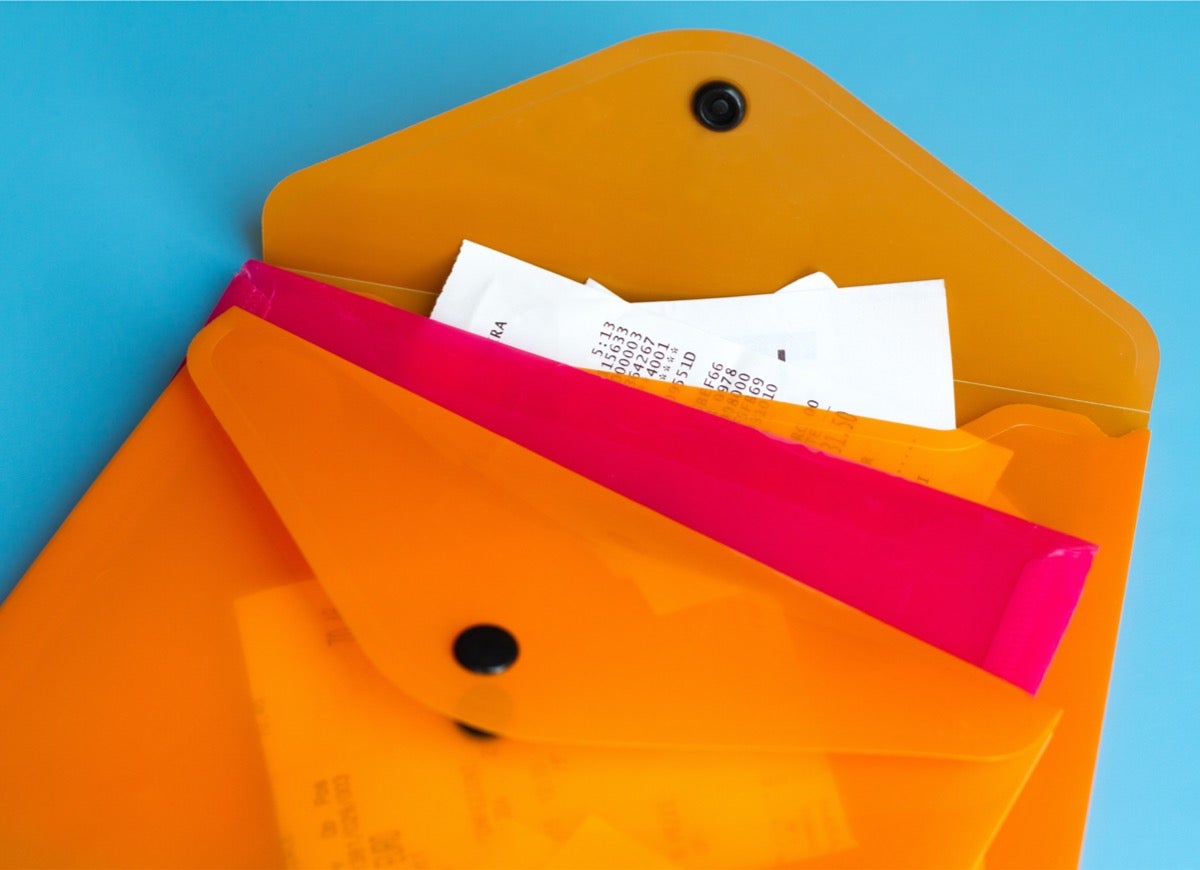
If you usually just toss receipts onto your dresser or desk, you probably have quite a pile of paper. Get it under control by throwing away receipts past their return-by date; some stores, including Target, have a 90-day limit for returns. Nor do you need to hang onto receipts for items that have been in use for several months, unless an item can be claimed as a tax deduction. Staple receipts for major purchases to their user manuals, and then sort the rest into an expandable file folder labeled with categories for specific stores, or by product type. Once every few months, go through the file folder and toss outdated receipts.
Refrigerator Door
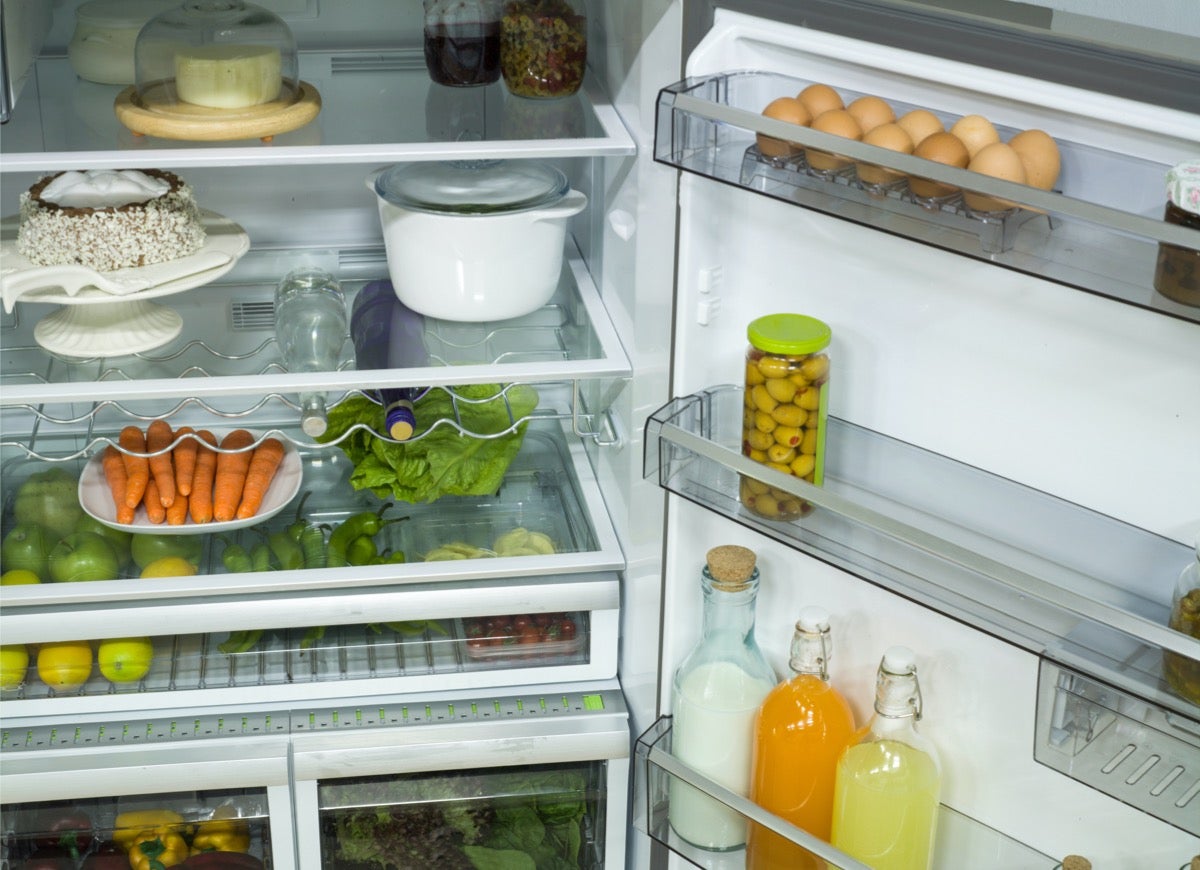
Those shelves along the inside of your refrigerator door are the perfect storage spot for condiments of all types. But those small bottles and jars tend to tip over and spill, often unnoticed, leaving a mess of congealed ketchup or soy sauce. An ingenious solution: Slip a few of the cardboard six-pack holders from your soda or beer into the fridge shelf space—after first removing everything, wiping the shelves clean, and tossing expired items—and now you have little corrals to keep your condiments standing upright. Goodbye, messy spills.
Media Madness
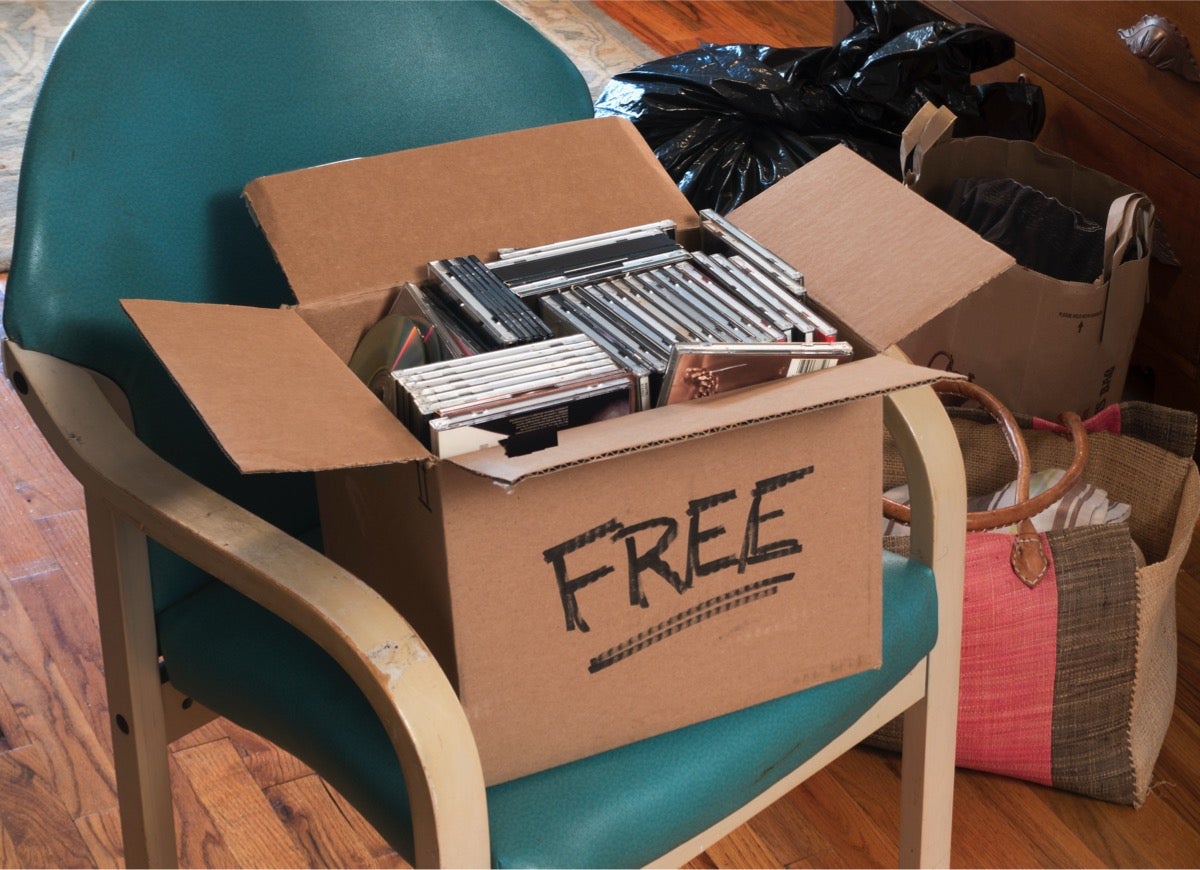
If you long ago switched to streaming all of your favorite shows and movies on your computer or phone, it’s time to get rid of those old DVDs or (gasp!) VCR tapes. Do the same with old video game consoles and games if you’ve upgraded to newer generations. Dispose of or donate old CDs and cassette tapes, and while you’re at it, get rid of all the mysterious power cords that don’t match anything you currently own. Now that you’ve streamlined your home media, keep ugly cords hidden away with a cable concealer system that both organizes and hides power cords (available on Amazon).
Medicine Cabinet

Old prescriptions, tubes of antifungal cream, that bottle of perfume from your grandma: It’s not uncommon for the medicine cabinet to be so full that you can’t open it without items tumbling down into the sink. Fortunately, this is one area that’s small enough to declutter in a half hour or so. First, get rid of anything that’s expired. Second, if your medicine cabinet is located in the same room as the shower or tub, there’s probably too much humidity for storing medications, so move OTC and prescription drugs to a kitchen cabinet or drawer. Finally, stock up on a few small plastic organizer boxes from the dollar store to keep bottles and tubes in place, attach a self-stick magnetic strip to the inside of the door to securely hold scissors, tweezers, and other metal items, and voilà! Chaos conquered.
Cooking Utensils
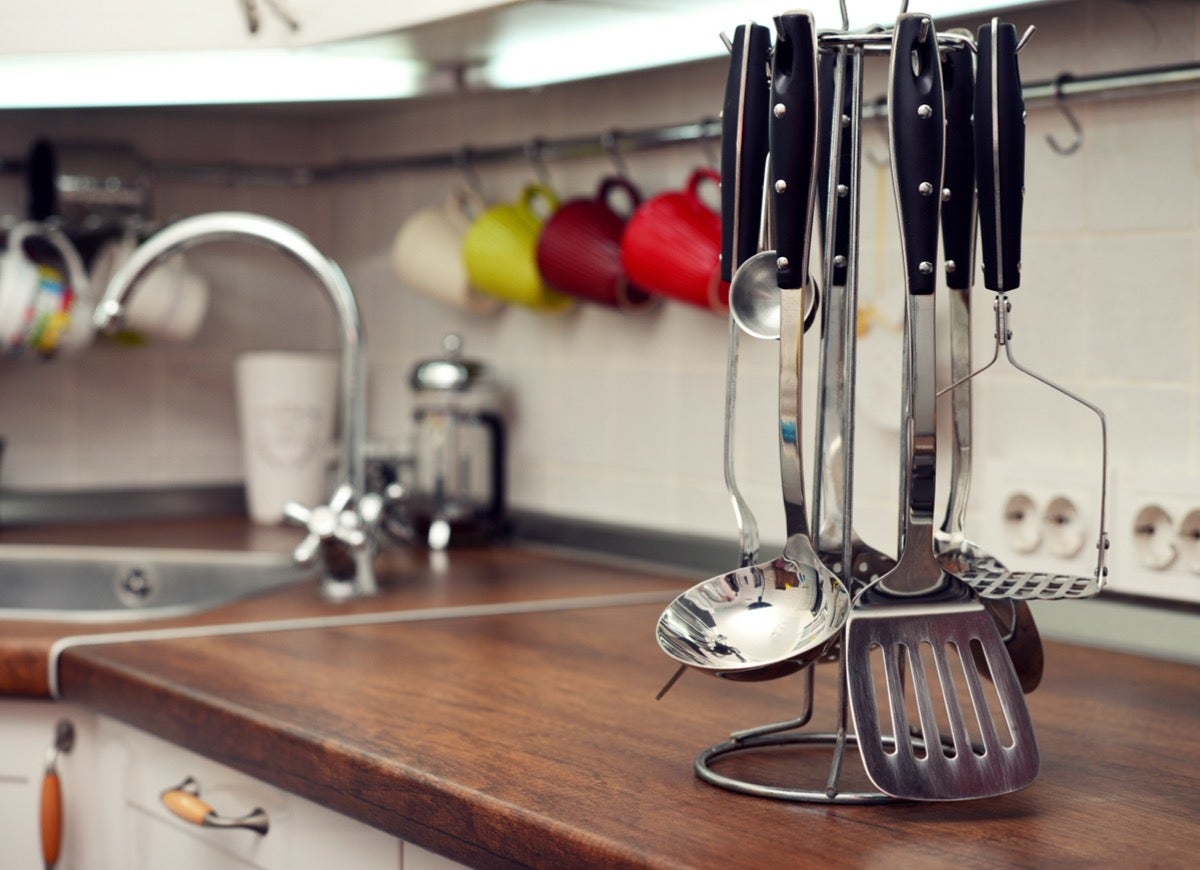
When your stir-fry is starting to smoke is not the time to discover that you can’t find your favorite spatula in the overloaded kitchen drawer. Make food prep easier by using a small, pretty flowerpot to hold your most-used cooking utensils right near the stove. You’ll never again suffer the frustration of hunting for a slotted spoon, whisk, cooking fork, spatula, or vegetable peeler while your dinner begins to burn.
Bath Toys
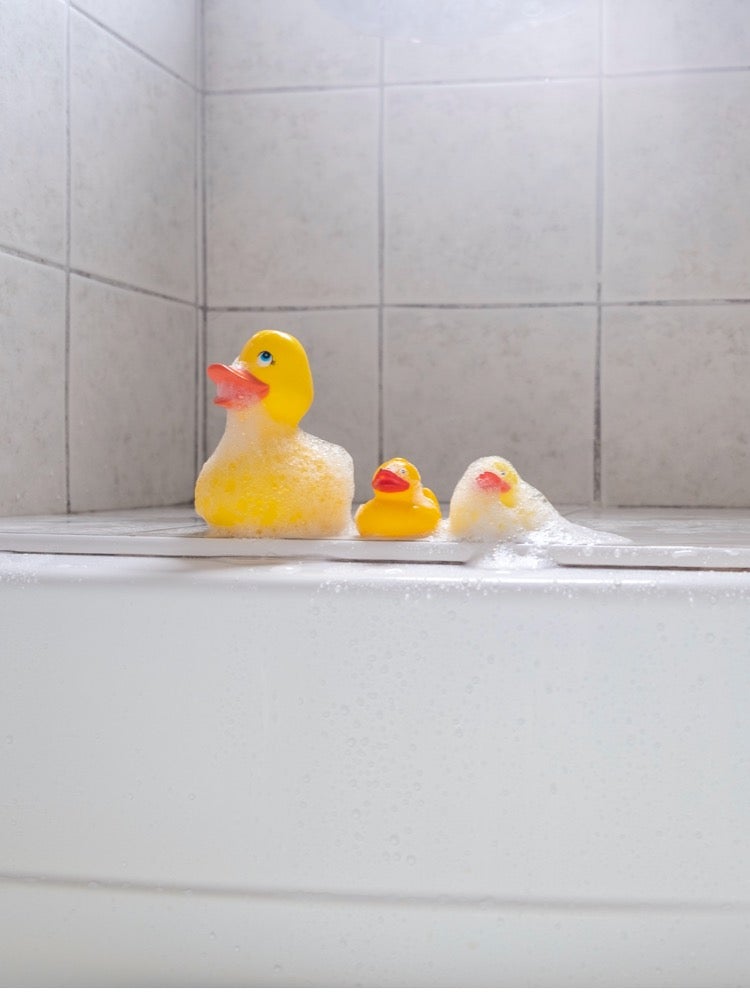
If you’re the proud parent of a toddler or two, it’s likely that bath time means toy time as well. But rubber duckies, plastic boats, bottles of tub colors, and the odd Barbie or action figure take up quite a bit of tub space, and these toys aren’t nearly as much fun for you as for your little ones when you just want to get the kids in and out of the tub in a hurry. One easy solution is a multitiered hanging wire basket like the ones used for ripening fruit. Simply hang the basket from the shower rod or a screw in the ceiling, and you’ll have the perfect spot to keep bath toys dry and out of the way when not in use.
Charge Your Batteries
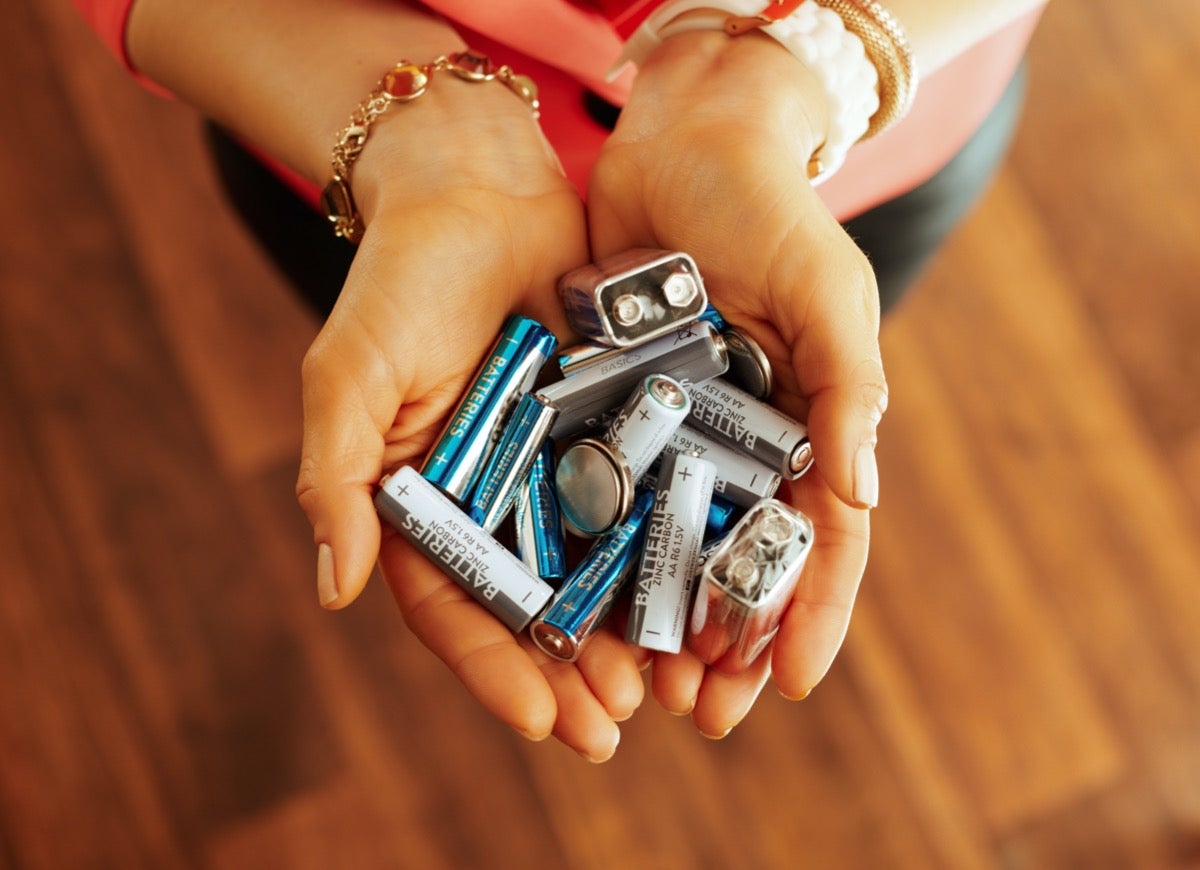
The struggle to find fresh batteries is a real one in many households. The solution? A small plastic tackle or craft-supply organizer—you can often find one at the dollar store. The various compartments of these organizers are ideal for separating different types of batteries, including AA, D, C, and even 9-volt. Even better, you’ll be able to tell at a glance when you’re running low on each battery type, so you can stock up before you discover that you are all out of D batteries for your flashlight in the middle of a power outage.
Related: The Best Organizers to Buy for Under $5, $15, and $25

Everything You Need for a Lush and Healthy Lawn
Keeping your grass green and your plants thriving doesn’t just take a green thumb—it starts with the right tools and supplies.
